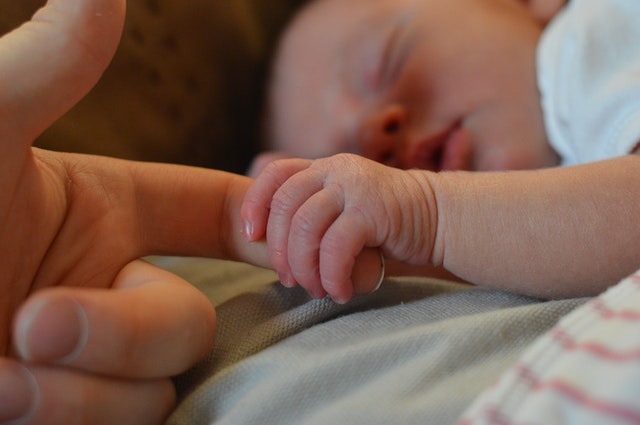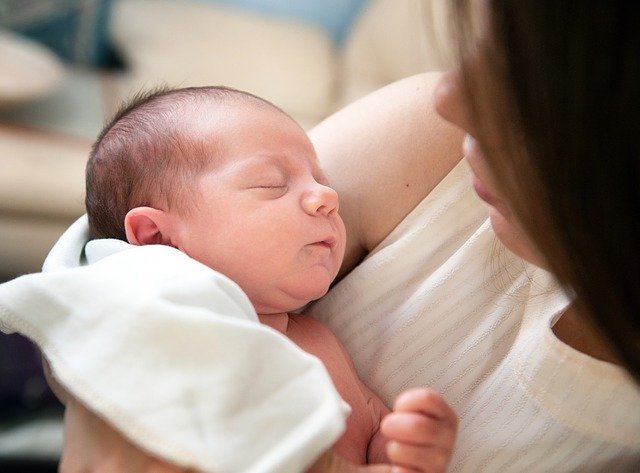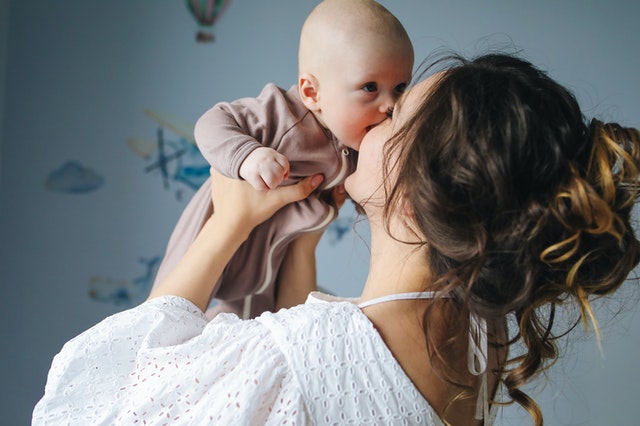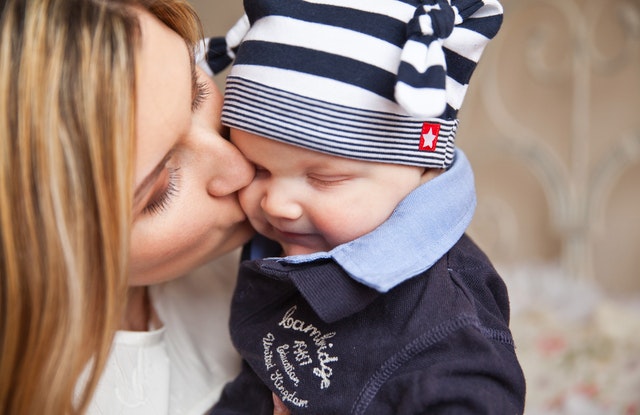
The reality of postpartum depression
A postpartum depression disclaimer
I just want to mention that I understand that the process of bringing life into this world is unique to every situation and every person involved. No two experiences are the same. I know that some people don’t relate to the intense struggle I felt in the postpartum period. This post is for those who did struggle and for those who maybe still do.
This post is not intended to scare anyone, or list some “worst-case-scenario” of how the postpartum period can be.
My intention is to share my experience and point of view openly, so that other people that are (or have) struggled, will feel a little less like they are an isolated case of the failed mother. I want you to know that you are not alone in the struggles you experience(d) and that the things you felt were valid and appropriate for what you were facing at the time.
You are not alone in how you feel. And you are not horrible for feeling that way. You are just dealing with a lot, and I know you are doing your best. Don’t be afraid to be honest. Reach out for help even if you think you shouldn’t. I know I didn’t… let me tell you a bit about why.

What is postpartum depression?
Postpartum depression translates from Latin into “after delivery” depression. So it seems pretty straight forward then… a depression you feel after giving birth. When I was pregnant, that’s exactly how “straight forward” it was treated. Doctors told me to be aware that some women experience a type of “baby blues” after they give birth and that this is because your hormones are adjusting and resetting.
They told me that for most women it sorts itself out on its own and that you might just find yourself crying a lot for no reason. No big deal. I was told that a few women feel a bit worse and that they may even have thoughts of harming themselves and/or their baby. I was made very aware of who to call if I felt that way. There was a plan in place. I was given a checklist of “symptoms to watch for”. It sat on my nightstand for months.
The signs and symptoms of postpartum depression

I never asked for help until it had gone on far too long. I didn’t get diagnosed with postpartum depression until 2 years after the birth of my daughter. Now, years later I think I’m starting to understand why I didn’t identify with the statements on the checklist and why I actually hid some of my symptoms from my doctor.
It’s because postpartum depression is a lot more complex than just hormones. And I didn't understand the multiple factors that can all culminate to make you slip down a very slippery slope. This is what no one is talking about and what I wish I knew about postpartum depression when I was pregnant. It’s hard to imagine before you’re actually there. But the postpartum period can have many difficult layers for people that all contribute to postpartum depression.

The bigger picture of postpartum depression
The body
During pregnancy, the body makes some incredible accommodations in order to grow a baby. Entire organ systems get moved around to make room. So it’s no surprise that after you give birth, everything is far more loose and stretched as it attempts to move back into its original place. That’s not to mention the physical trauma some women are left with from the actual birth, be it tearing or cesarean wounds or worse. All things considered, we all know that giving birth takes a heavy toll on the female body. We just cross our fingers and hope that we will be fine and that it will be worth it for us.
And that thought can turn against us if we then find we have trouble bonding with our baby after birth due to postpartum depression. The trauma we have suffered can be a factor of resentment we feel toward the baby, however irrational that thought might be. Breastfeeding can further add to pain and frustration and all these things start to collect in a little tally.

The mind
Besides the painful and dissociating effect childbirth can have on your body, it also has a deep impact on your mind and mental state. Sharing your body during pregnancy and then being the sole provider of sustaining nutrients to the baby can start to feel like your body is being “used”. And having this seismic shift of all your attention from your own needs and well-being to your baby’s can really rock your self identity.
I also spent lots of nights barely awake and breastfeeding running through all sorts of questions in my mind. In the silence I would sit and wonder about my baby’s health. Stress over whether I was doing a good enough job. Worry about finances and sometimes wonder what my future looked like. I was specifically starting to feel like my future didn’t really matter anymore now that my daughter was here.
Losing myself
Sometimes I felt like I was only there to care for her now, and my own needs and plans didn’t matter anymore. I wasn’t even sure what I should “be” during the fleeting minutes when someone took her off my hands. Who was I now? I was here to care for her, but what else would I do? Would I ever get back to my career? At the time it felt unthinkable to consider my own ideas of the future. It felt like everything revolved around her now, and again… however irrational it might be, I felt that pang of disappointment and resentment.
Life as I knew it was now over, and I couldn’t really picture what it would look like beyond my half an hour walk with the stroller outside my house. Depression and anxiety continued to creep into all of my thoughts, and I felt ever more ashamed of having these ideas. The more I felt ashamed, the more I isolated myself because I couldn’t explain or admit what I was feeling. It felt wrong and I felt like I was a failing mother because of it.
Relationships
In the swirling chaos of the first few months at home, many things are changing. Sleep is an impossible commodity, and after months of zombi-ying through life, everyone in the house is a little irritable to say the least. This does have an impact on your relationships, be it your spouse, family or friends. Add physical birth trauma to the list and your sex life can become a far off memory. If that is a way that you like to connect with your partner, then relations can become even more strained.

Sexual needs can almost seem like a chore when you’re barely managing to remember to eat. Again, there are many different versions of relationships and many different reactions people have. But if you have a partner who starts to distance from the stress (and through that from you) it can feel especially hurtful. Perhaps they turn to a vice and start to drink more. Maybe they crave time away from the chaos of home and start obsessing over the gym. But either way, you can start to feel that things are different now. And it’s another disappointment you may not have expected.
Finances and work
Even financial stress can start to add to the anxieties. Many of us don’t have very good (or any) maternity leave and have to turn to savings when we are taken out of the job market. I had a difficult pregnancy and had to stop working about 5 months in because I could not sit or stand without having my back seize up. That sure extends the planned absence from work.
I also expected that I would be on my feet again in no time after the birth. But with the postpartum depression I was experiencing, I was barely functioning at home. Work seemed like another dreaded looming challenge that was coming my way. My mind also felt so focused on the baby. I found it hard to focus on work when I went back. There were still so many things to take care of for her. Arranging dependable care was hard and gave me so much anxiety.
I wanted to stay home, but we needed the money.
All the baby gadgets I so desperately wanted for peace of mind had cost a lot more than we had initially thought. In my mind I understood that a heartbeat monitor wasn’t “necessary” for the baby, but I was too anxious to get any sleep without it on her foot. We were already dealing with debt from the longer than expected absence. And juggling credit card debt on top of that was on my mind constantly when I was up breastfeeding at night.

Why didn’t I ask for help?
With all this going on, you’d think that I would have reached out to my doctor and asked for help with my postpartum depression. A rational person would expect to check off the statements on that checklist and lined up at the therapist’s office. But instead, I did the opposite and continued to isolate and punish myself mentally.

Because I had never heard any postpartum stories like mine, I kept assuming that I was uniquely flawed as a mother. Because I had only seen movies where moms are overjoyed with their newborn babies and stay up giggling and cuddling with them in bed, I felt that I must be a horrible person for not feeling this connection with my baby. I was also terrified that it would never change and couldn’t picture a future like that.
For that reason, I felt a lot of shame for how I was feeling, and downplayed my symptoms to the doctor. I was scared that if I told the truth, they would confirm that I was an unfit mother, and take my child away. The thought that they would even lock me up, or force me on meds scared me to death. I was convinced I had to hide what I was really going through at all costs. I had to carry this burden alone.
My doctor said that I was experiencing some “baby blues” and that my hormones would soon settle and I’d be back to normal. She had no idea the true wreckage I felt inside on so many levels of my life. I wasn’t actually diagnosed with postpartum depression until 2 years after I gave birth.

Continued consequences of postpartum depression
Oh yeah, that brings me to the point. If you just ignore it and hope that it will somehow go away on its own...it doesn’t. In fact, postpartum depression can change and morph into other expressions in your life that lead you to make decisions and do things that aren’t rational or in your best interest. It can seep into all sorts of places in your life and keep popping up through different versions of anxieties and depression. Even after you feel much better about your relationship with your baby, and/or your spouse, the changes that you never dealt with can haunt your decisions and self identity for years to come.


The lessons learned
So, what’s the point of listing all these ways in which having a child affects the mother’s life postpartum? Because society is writing off the postpartum experience as a “hormone adjustment” that fails to prepare us for the monumental changes that can leave us feeling desperate, paranoid, anxious and depressed. I think that talking about this more openly is the key to showing mothers that even the “craziest” of their thoughts are understandable under all the circumstances that can culminate for some of us.
And if you’re having thoughts that make you feel like a bad mom…. it just means you’re human. It means you’re struggling. And it means you’re working through an incredibly difficult life adjustment that has affected your life on every level. And that’s okay. More importantly, if you get help and find the right resources, you won’t always feel that way.
Because believe it or not, the thoughts you have in the nursery, exhaustedly breastfeeding your child in the dark while panicking in the glow of your phone on another googled baby question aren’t actually that rational. And it helps to get the opinion of a professional to help point that out.

It took me 2 years to finally get help and it has taken me another 2 years to come to peace with everything that happened. I wish I hadn’t felt so ashamed of how I felt and how I was coping. That way, I could have gotten help sooner and not let the pain go on for so long.
But I simply didn’t know that this is what “postpartum depression” really looks like.
Sources
https://www.camh.ca/en/health-info/mental-illness-and-addiction-index/postpartum-depression
http://postpartum.org/services/for-moms/signs-of-postpartum-depression-anxiety/
